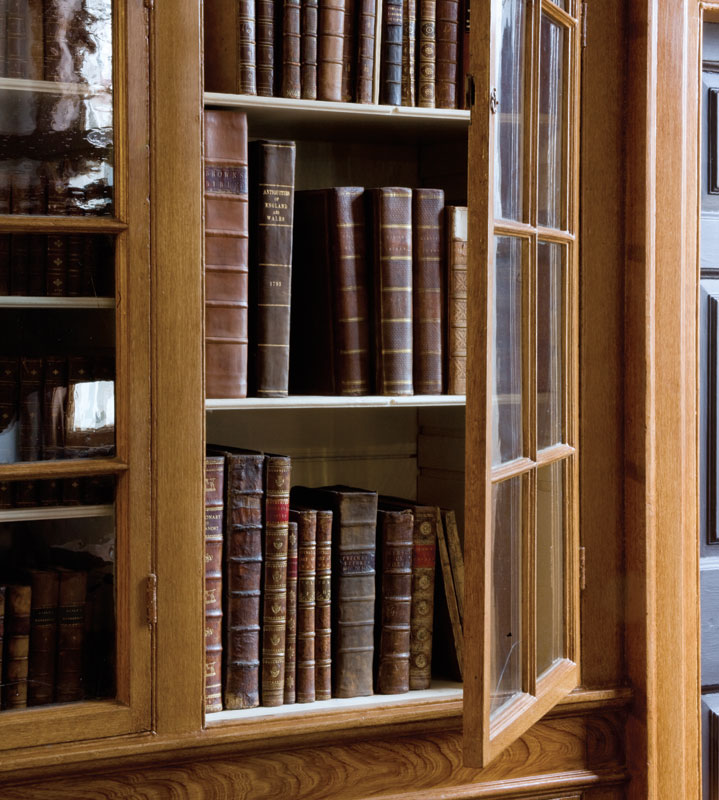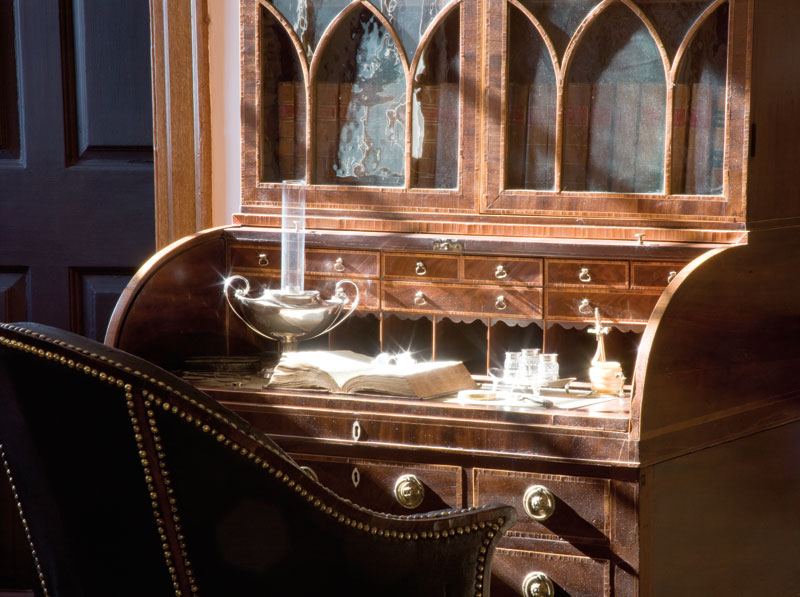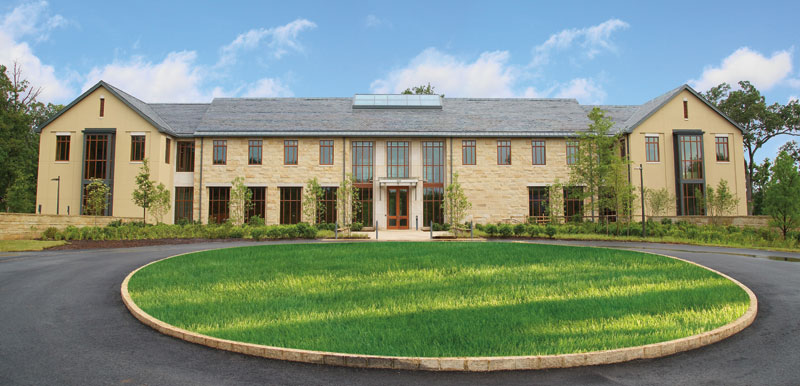George Washington’s New Library
When asked what the library’s holy grail would be in terms of a future acquisition, Santangelo turned the question on its head, his passion for broadening the base of Washington scholars palpable.
“Rather than acquiring a particular volume or manuscript, our holy grail would be to see the product of someone’s research and be a part of that research,” he said. “Our librarianship is at your service and can help produce a monumental book, award-winning manuscript, creation of a database, or serve someone who comes to use the library to check history facts so that their new computer game about George Washington is accurate.”
For many, a grand presidential library for the first president is long overdue. “No president in American history deserves the honor of an official library more than our first chief executive—nor is there a better story to tell,” said Mount Vernon president Curt Viebranz.
There may not be a more picturesque library, either. Light pours into the library from every angle, casting a glow on its hardwood floors and stone wall accents. The three-level structure is built into a hillside to preserve the scenic views of the newly planted trees and gardens.
Under the recently named director, Dr. Douglas Bradburn, the new library is planting other seeds, too, starting with the creation of fellowships and internships for short- and long-term residential scholars, digital asset sharing, and an expanded agenda of lectures, symposia, and other outreach programs.
“This library has the potential to trump all presidential libraries, as Washington’s impact on the history and character of the United States is greater than that of any president, and perhaps any single historic figure,” said Bradburn.
The most exciting and most overlooked element of the new library may well be in its vision for creating leadership training programs for leaders in the government, business, military, and nonprofit sectors. Why add a leadership program to an already comprehensive library’s mission?
“I think first and foremost that George Washington was a man of integrity, and a man who had exceptional leadership skills,” Santangelo said. “Now more than ever our country needs to be reminded about our founding past. We have a stalemate in Congress and it seems as though nothing is able to move forward. That happened during the founding fathers as well but they were able to work together to move the ship forward in a way that our politicians in recent history have been unable.”
The flurry of activity surrounding the library’s opening hasn’t stopped Santangelo from thinking about the potential for leadership training to make a profound impact on the lives of everyone the library serves.
“It’s about affecting people’s lives personally so that future leadership is going to be based on personal integrity and strength,” he said. “It has to start within. We hope that by providing resources here, leadership courses, those things will be able to build character and change lives for the better.”











